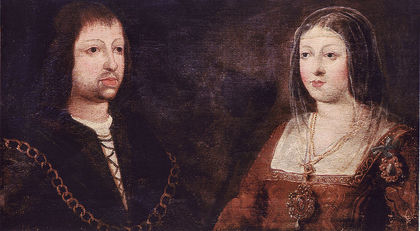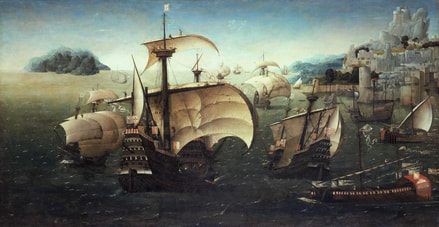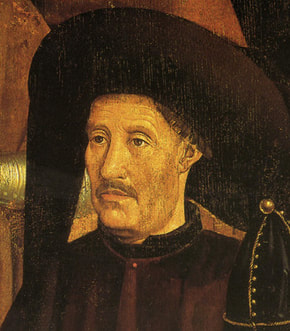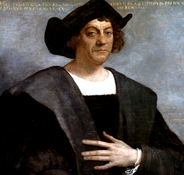AGE OF EXPLORATION OVERVIEW
The Age of Exploration, or Age of Discovery, is one of the most important events in the history of the western world. It began in the early 15th century and continued until the end of the 17th century, and involved European explorers using their navigational skills to travel the world. In general, the Age of Exploration occurred for several different reasons, particularly in the countries of Portugal, Spain, France and England.
First, European countries were seeking new trade routes to distant trading partners in the Far East, including: China, India and Japan. European countries had traditionally traded with these countries through the Silk Road. The Silk Road was mostly over land and took merchants a great deal of time to ship goods. European countries were interested in speeding up trade by finding a quicker sea route.
A second reason for the beginning of the Age of Exploration was the rise of absolute monarchies in Europe. The powerful monarchs of Europe had centralized the authority and wealth of each country and used their vast wealth to fund the expeditions of many explorers. For example, Christopher Columbus was funded by King Ferdinand and Queen Isabella of Spain.
Third, Europeans had made some dramatic improvements in their navigational skill and technology that allowed early explorers to travel further and more accurately at sea. For example, ship building had drastically improved in the years immediately before the Age of Exploration began. New ships, such as the carrack and the caravel, allowed explorers to hold more cargo and the venture further than ever before.
The final reason for why the Age of Exploration began is because Europeans of the time were interested in foreign cultures and goods. In general, the Renaissance in Europe caused an expansion of new ideas and new understandings of the world. Europeans were interested in learning about these new ideas and expanding on their worldviews.
The Age of Exploration is considered to have occurred mostly with four European nations, which included: Portugal, Spain, France and England. Each of these countries experienced the same forces that pushed them to explore the world, but they also shared one important characteristic. They were all countries that bordered on the Atlantic Ocean and had easy access to the sea with many sea ports and experienced sailors. This allowed these four nations to have the ability to begin exploring while other European nations did not.
|
Portugal is considered to have started the Age of Exploration ahead of the other main three nations with the expeditions that were carried out under Prince Henry the Navigator. Although he never directly carried out any trips of his own, Henry was vital in Portugal’s earliest trips and for revolutionizing the way that these trips were recorded. He set up a school of navigation in 1419 and under his direction sailors perfected sailing techniques, navigational tools, designs for sails and different mapping techniques. For example, he is credited with being the first to require captains of ships to keep a record or log of their journeys. This was important because it allowed different explorers to combine their findings to build up a common knowledge base of discoveries.
|
Early Portuguese explorers travelled south along the western coast of Africa in search of a new route to India and China in the early 1400s. These early explorers were so successful that Lisbon, the capital of Portugal, became the main trade center of Europe at the time.
|
Portugal’s neighbor, Spain, was jealous of Portugal’s expeditions and the resulting wealth and wanted to begin its own explorations. Instead of heading south, like Portuguese sailors, Spanish explorers headed west across the Atlantic Ocean. These early explorers were seeking a quicker trade route to the Far East, including China and India. The most famous example of early Spanish explorers is Christopher Columbus. Columbus, while being of Italian nationality, sailed for Spain after being funded by the king and queen of Spain. He is credited with being the first European to explore the New World in 1492 (besides the Vikings 500 years earlier) and with beginning the wave of European settlement into the Americas.
|
Despite financing the voyage of John Cabot to Newfoundland in 1497, England did not show major interest in exploration until the late 1500s. By this time, both Spain and Portugal had become incredibly wealthy from their own expeditions and England wanted to gain land and wealth for itself. Many of the earliest English explorers voyaged to the New World and established colonies that England controlled as part of its vast empire. Most of these colonies were established along the eastern seaboard of modern-day Canada and the United States.
Similar to England, France was inspired to begin exploring in the 1500s during the Age of Exploration after seeing the wealth of both Spain and Portugal increase. Most of France’s expeditions focused on the areas of the St. Lawrence River in Canada. For example, Jacques Cartier famously explored the region for France and established an early colony for the French empire.
The Age of Exploration ended in the early 17th century after technological advancements and increased knowledge of the world allowed Europeans to travel easily across the globe by sea. In addition, the creation of settlements along the coasts of the newly found areas created a network of communication and trade, therefore ending the need to search for trade routes.
Similar to England, France was inspired to begin exploring in the 1500s during the Age of Exploration after seeing the wealth of both Spain and Portugal increase. Most of France’s expeditions focused on the areas of the St. Lawrence River in Canada. For example, Jacques Cartier famously explored the region for France and established an early colony for the French empire.
The Age of Exploration ended in the early 17th century after technological advancements and increased knowledge of the world allowed Europeans to travel easily across the globe by sea. In addition, the creation of settlements along the coasts of the newly found areas created a network of communication and trade, therefore ending the need to search for trade routes.




